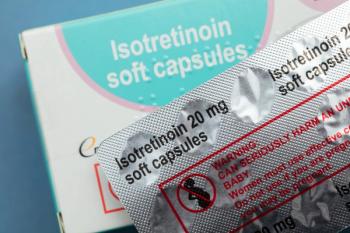
Targeting Mucus Shield Improves Chemotherapy in Pancreatic Cancer
Mucus can form a shield around cancerous cells to protect from chemotherapy drugs.
Mucus has been found to play a role in cancer resistance to chemotherapy drugs by forming a shield around cancer cells, but researchers from the Stephenson Cancer Center have potentially found a way to break down this defense in pancreatic cancer.
“Pancreatic cancer is a lethal disease, and its management is an ongoing challenge,” said principal investigator Altaf Mohammed, PhD. “Pancreatic cancer is the fourth leading cause of deaths due to cancer in the United States. It is a highly aggressive cancer that is usually diagnosed at an advanced stage and has the worst prognosis of any malignancy.”
Researchers discovered a gene target called GCNT3 that plays a key role in the biosynthesis of mucins, which is a principal component of mucus.
“The mucins appear to somehow shield the cancer cells, making them resistant to chemotherapy,” said researcher C.V. Rao, PhD.
When the mucins shield cancer cells, it allows them to grow and multiple rapidly.
“GCNT3 is minimally expressed in the normal pancreas, but our research showed that it is significantly overexpressed during the development of pancreatic cancer,” Mohammed said. “This overexpression correlates to excessive mucin production, rapid tumor growth and reduced patient survival.”
The mucins are able to form a mesh that acts as a shield and keeps the chemotherapy drugs from killing cancerous cells. Although there are numerous mucins involved in this process, the GCNT3 was found to be most involved in the function of majority of them.
Researchers believed that if they targeted this single gene, it could shut down multiple mucins simultaneously and, in turn, break down the shield.
During the study, researchers used a molecule called talniflumate that regulates mucus production in asthma, cystic fibrosis, and other diseases.
“We determined that talniflumate effectively binds to GCNT3,” Mohammed said. “Use of talniflumate was shown to reduce mucin synthesis during the development of pancreatic cancer in laboratory models.”
Furthermore, talniflumate seemed to boost the body’s cancer fighting abilities.
Researchers believe that these findings could help find a new therapy for pancreatic cancer.
Newsletter
Stay informed on drug updates, treatment guidelines, and pharmacy practice trends—subscribe to Pharmacy Times for weekly clinical insights.







































